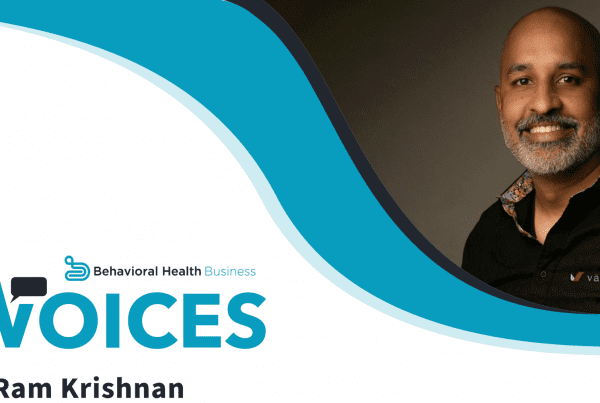A partnership with Valant helped Mount Diablo Unified School District (MDUSD) Counseling Services reclaim hours of lost time and plug holes in an error-prone billing process.
MDUSD Counseling Services was using hard copy files instead of an EHR to manage their workflow. Bills were lost, staff were overwhelmed, and arduous documentation processes drained counselors of the energy they needed to pour into students.
MDUSD saved staff upwards of 80 hours per month and freed up 15 hours per month per clinician, by switching to Valant’s Behavioral Health EHR.
The Client: Mount Diablo Unified School District
The Mount Diablo Unified School District (MDUSD) Counseling Services is a school counseling program serving students in 60 schools, elementary through high school, in the Mount Diablo Unified School District in Contra Costa County, California. MDUSD’s 35 clinical providers work across seven different programs to provide mental health services to students and parents.
Providers serve students individually and in group sessions, and design behavioral health-related content and activities for both classrooms and other school settings, in order to create a positive school environment and promote strong mental health among students. They also help them set educational goals, meet graduation requirements, and evaluate career opportunities. In times of emergency, the group’s Crisis Response Team offers guidance and support to students, families, and staff.
MDUSD Counseling Services is contracted through Contra Costa County and must meet county requirements for documentation and programming.
The Problem: Losing Time and Money
Until 2021, the providers of MDUSD Counseling Services did not utilize an electronic health record system (EHR) to manage their workflow. Staff and providers managed billing, patient records, and clinical documentation on paper; creating inefficiencies and inaccuracies.
Chaotic Billing
Each billing cycle, billers processed hundreds of paper documents by hand. The health department required them to pull certain categories of information from each clinician’s progress notes to feed into the county’s health data and information system. Paperwork was also faxed or scanned to the county. The workflow was unevenly distributed throughout the billing cycles, causing staff shortages at certain times and staff excesses at others.
Inevitably, some paperwork/billing got lost due to technological glitches or to human error. This led to lost reimbursement and late payments.
Cumbersome Clinical Documentation
In addition to the billers, the paper system had a negative impact on the work of the clinicians.
“Documentation has always been the worst part of the job,” says Marie Collins, an MDUSD school clinician.
Collins and most of her fellow clinicians wrote their clinical notes on the computer in a word document. Clinicians had to copy and paste their clinical notes into the specific document format, print and sign them. Some clinicians had to deliver the notes to their supervisor for approval. Any error on the paperwork could require the clinicians to collect the document again, correct it, and have it re-approved.
Because of this process, providers often fell behind on documentation. It was the usual practice for providers to block out a day or two on the calendar just to catch up on documentation, which meant they were less available to their students.
Productivity reports were also required to verify that clinicians spent a certain amount of time with clients every month. This meant combing through each clinician’s paper records and counting up the total amount of time spent on clinical encounters. This task required approximately 10 hours, per program or 70 hours of staff time each month.
Needed: Customizable Behavioral Health EHR Technology
The solution to MDUSD Counseling Services’ needs was an EHR, which could save them time through automated processes and reporting. The District began to research EHR providers through a robust process where a variety of programs were compared for accuracy, ease of use, workflow process and cost.
The District’s partnership with the county health department required them to produce specific forms for documentation, billing, informed consent, and other records, many of which are changed frequently. “We were looking for [an EHR] that could tailor to our needs specifically, not just a basic software that we would have to work around,” says Jessica Pozos, an administrator with MDUSD. “We needed a company that’s going to be able to adjust those forms at a moment’s notice.”
Solution: Valant Saves the Day
When MDUSD explained the challenges to Valant, the Valant team rolled up their sleeves. They put together a task force to collaborate with clinicians and staff to create a product that met all criteria.
The team used Valant’s flexible and robust reporting features to create the custom forms clinicians needed within the EHR. This included a customized format for clinical progress notes, productivity reports, and many others. They also committed to enacting a speedy response process for any change requests to the forms. When staff receive a request, they now contact their Valant representative, who makes changes right away and prepares a test copy for approval.
Valant’s customized documentation features also eased workflow demands for billing staff. Under the old system, a significant task was to transfer information from specific fields on the progress notes into the Medi-Cal health data and information system. The Valant team created a targeted report that pulls the needed information from progress notes automatically. Staff then simply upload the reports into the Medi-Cal system. Electronic billing also means no more paper notes lost in transit, and no time spent alphabetizing or sorting.
Results: Time Savings, Improved Care, and Happier Clinicians
MDUSD’s investment in Valant software paid off. Automating their processes improved productivity and accuracy. Pozos estimates that billers save 5-10 hours per month now that they no longer hand-feed information into the county system or sort notes manually. The electronic process also eliminates many opportunities for human error, which means less time spent cleaning up errors.
Administrative staff were delighted with Valant’s reporting capabilities. Valant reports can calculate provider productivity almost instantaneously, taking productivity report generation down to about one hour of work per clinician per month.
That is 63 work hours saved through just one automation process.
Perhaps more than anyone, clinicians appreciate the time reclaimed by adopting electronic health records through Valant. The all-in-one system makes it easy to document progress notes on county-approved formatting and have them approved and delivered to billing. Most MDUSD clinicians manage nine clients at any given time, and the streamlined documentation saves approximately 15 hours per month.
What do they do with 15 extra hours? Provide better service to their clients, Collins says. With Valant, her time is “freed up to see more clients, freed up to provide more service within the classrooms, and also freed up the stress and pressure around the production of timely notes.”
Clinicians are better able to stay present with their students and focus on the immediate needs of the day.
“We’ve saved so much time.”
“It’s been a life-saver.”
“I’m hardly ever behind now.”
“Great collaboration with Valant!”
These are just some of the comments you’ll hear from Mount Diablo Unified School District Counseling Services staff about their experience switching to Valant software. While it’s possible to calculate time and money saved, the value of stress reduction at work is priceless.
See How Valant Can Help Your Behavioral Health Practice
What burdens could Valant software take off your plate? Contact us today to find out how better automation and all-in-one EHR software can make all the difference to your staff and clinicians.





